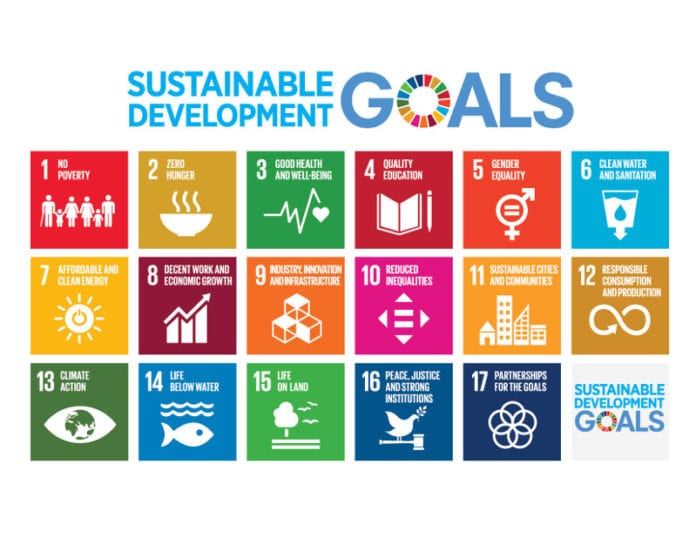The student strikes taking place around the globe to protest government inaction on global warming have put the spotlight on climate change. Inspired by 16-year-old Swedish student and political activist Greta Thunberg, hundreds of thousands of students walk out of class each Friday morning to strike for climate change — and have been for the past six months.
This recent limelight on climate change is also helping increase the prominence of the United Nations’ 2030 Agenda for Sustainable Development, which was adopted by all UN member states in 2015, and provides a blueprint for peace and prosperity for people and the planet now and in the future.
The UN has identified 17 sustainable development goals (SDGs), which address global challenges we face—such as poverty, climate change, the environment, and inequality—and has set an agenda to achieve each goal and target by 2030.
Rather than being sacrifices our businesses must make, the UN’s sustainable development goals are good for business. In fact, companies embracing sustainability initiatives may discover benefits and opportunities they hadn’t even dreamed about. By working toward the 17 SDGs our company isn’t making compromises—we’re putting money in our pockets and we’re finding huge opportunities.
For example, we’re running our business in a better way. We’re realizing resource savings by using less materials, such as steel and electricity, for the compact equipment we produce, which also results in production cost savings. We’re producing less water waste while saving energy and we’re considering the environmental impacts of any changes or innovations to our equipment. We’re more cost-effective and efficient because of our sustainability initiatives.
If the products we are manufacturing are good for the environment, they usually provide safe, healthy working environments for operators or end-users. These environmental and sustainability considerations make us a more attractive company to do business with as well and to work for, which is so important these days.
Sweden’s economy is based on industrial exports and technology, and it can be difficult to attract and retain employees. Additionally, how do we recruit younger generations? For millennials, and future generations, a job must have meaning as these age groups want to feel they are contributing to, and making a difference in, the world around them. You have to show them they can make a difference by working for your operation.
By committing to the SDGs, you’re putting your company in a good position for recruitment and retention. For example, we’re making compact equipment that requires the smallest resource inputs possible and uses minimal resources and materials to produce end-users’ products (treated seed). Our equipment increases farmers’ yields and we are helping put food on the table. This is a great start in attracting people to our company. The next generation is very aware of what they are eating and how it was produced, and they will demand sustainably-produced products.
We can show them this industry is interesting, exciting and good for the environment. Corporate sustainability will attract young people to our companies. This is just one benefit of incorporating sustainability initiatives.
One of the SDGs is gender equality. There are huge projects to attract and promote women in food and agriculture now, and this trend is growing. Focusing on helping women in industry will also increase our businesses and our opportunities.
From its beginnings, our corporate culture has been built on the principles of economy and resource conservation, which continues today. In Europe, we’re running out of power — that’s the next challenge, and we can meet that challenge with sustainable practices. It’s important not to view sustainability as a project but as something we must incorporate into our daily lives.
The whole industry is going in this direction and we have the opportunity to be leaders. Just think, if one secondary school student is able to initiate a global movement to raise awareness about climate change, I wonder what we are capable of as individuals, as corporate entities, and as an industry.
Article Credit: Seed World

